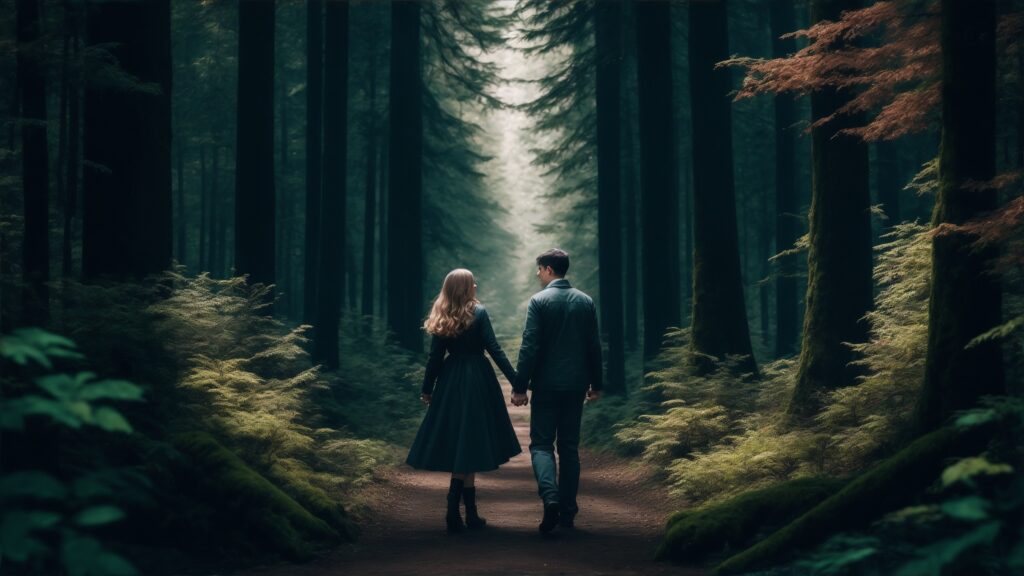Analyze the role of nature and the rural setting in Far from the Madding Crowd. How does the environment mirror the characters’ emotions and decisions, and how does it contribute to the overall mood of the story?

The Role of Nature and the Rural Setting in Far from the Madding Crowd
Thomas Hardy‘s novel “Far from the Madding Crowd” is not merely a story of characters and relationships; it is also a narrative deeply intertwined with the natural world and the rural landscapes of England. The setting of the novel plays a vital role in shaping the characters’ emotions, decisions, and the overall mood of the story. Through the vivid depiction of nature’s beauty, power, and symbolism, Hardy creates a rich tapestry that reflects the characters’ inner struggles, desires, and the intricate web of their lives.
Nature as a Reflective Mirror:
The rural setting of Weatherbury mirrors the emotional landscape of the characters. Hardy skillfully utilizes nature to mirror their joys, sorrows, and uncertainties. For instance, the serene beauty of the countryside reflects Bathsheba’s initial optimism and Gabriel’s tranquil state. As Bathsheba’s challenges increase, the weather turns turbulent, mirroring her inner turmoil.
Symbolism and Reflection of Emotions:
The rural setting serves as a canvas on which the characters’ emotions are painted. The changing seasons symbolize the cyclical nature of life and the characters’ journeys. Bathsheba’s encounter with the lamb reflects her vulnerability, while Gabriel’s loss of his flock mirrors his own misfortune. The landscape’s transformation from thriving farmland to desolation after Troy’s arrival symbolizes the destructive impact of his presence.
Nature’s Indifference and Symbolic Power:
Nature’s indifference to human emotions adds an element of depth to the story. The landscape’s constant existence, regardless of human affairs, highlights the characters’ smallness in the grand scheme of things. The symbolism of the oak tree, both as Gabriel’s namesake and as a symbol of strength and endurance, reflects his character’s steadfastness in the face of adversity.
Confluence of Nature and Characters’ Lives:
The landscape is an active participant in the characters’ lives, often shaping their destinies. Gabriel’s offer of his barley crop to Bathsheba is indicative of his benevolence and nature’s fertility. Bathsheba’s fortunes and emotions are closely linked to the farm’s prosperity or hardships, reflecting the intimate connection between human lives and the land they cultivate.
The Influence of Seasons:
The changing seasons reflect the characters’ emotional arcs. Bathsheba’s interactions with Gabriel evolve alongside the seasons, symbolizing her growth and changing feelings. The harsh winter during Bathsheba’s marriage to Troy reflects her emotional turmoil, while the spring that follows his death marks her renewal and newfound strength.
Bathsheba’s Stormy Moments:
Nature often mirrors the storms within Bathsheba’s heart. The tempestuous weather on the day of Boldwood’s proposal foreshadows the emotional turmoil that follows. Similarly, the storm during Troy’s return symbolizes the chaos he brings into her life. These instances reflect the fusion of the external environment with the characters’ inner experiences.
Romantic Symbolism and Setting:
The rural landscape contributes to the romantic aspects of the story. The picturesque beauty of Weatherbury serves as a backdrop to the romantic interactions between characters. The idyllic scenes of the farm evoke a sense of nostalgia, emphasizing the novel’s exploration of love, desire, and emotional connections.
Nature as a Moral Compass:
Nature serves as a moral compass that guides the characters’ actions. Bathsheba’s hesitation in marrying Boldwood is reflected in the atmospheric tension before her decision. The rain after Troy’s burial symbolizes cleansing and renewal, aligning with his departure marking a turning point in Bathsheba’s life.
Hardy’s Philosophical Reflections:
Hardy’s own philosophical perspectives on the interconnectedness of human lives and the natural world are evident in the novel. Nature’s vastness and permanence juxtapose with the characters’ transient existence, emphasizing the themes of impermanence and mortality.
Mood and Atmosphere:
The rural setting contributes significantly to the overall mood and atmosphere of the story. From the tranquil and optimistic beginning to the stormy and tumultuous middle, and finally to the renewal and redemption at the end, the landscape shapes the emotional journey of the characters.
Conclusion:
“Far from the Madding Crowd” exemplifies the profound influence of nature and the rural setting on characters’ emotions, decisions, and the overall mood of the story. Hardy masterfully weaves the natural world into the narrative, utilizing symbolism, metaphor, and seasonal changes to reflect the characters’ inner lives and challenges. The setting serves as a canvas upon which the characters’ struggles, desires, and growth are painted, contributing to the novel’s depth, complexity, and timeless appeal.
*****
Read More :
More Questions and Answers from Far from the Madding Crowd by Thomas Hardy


